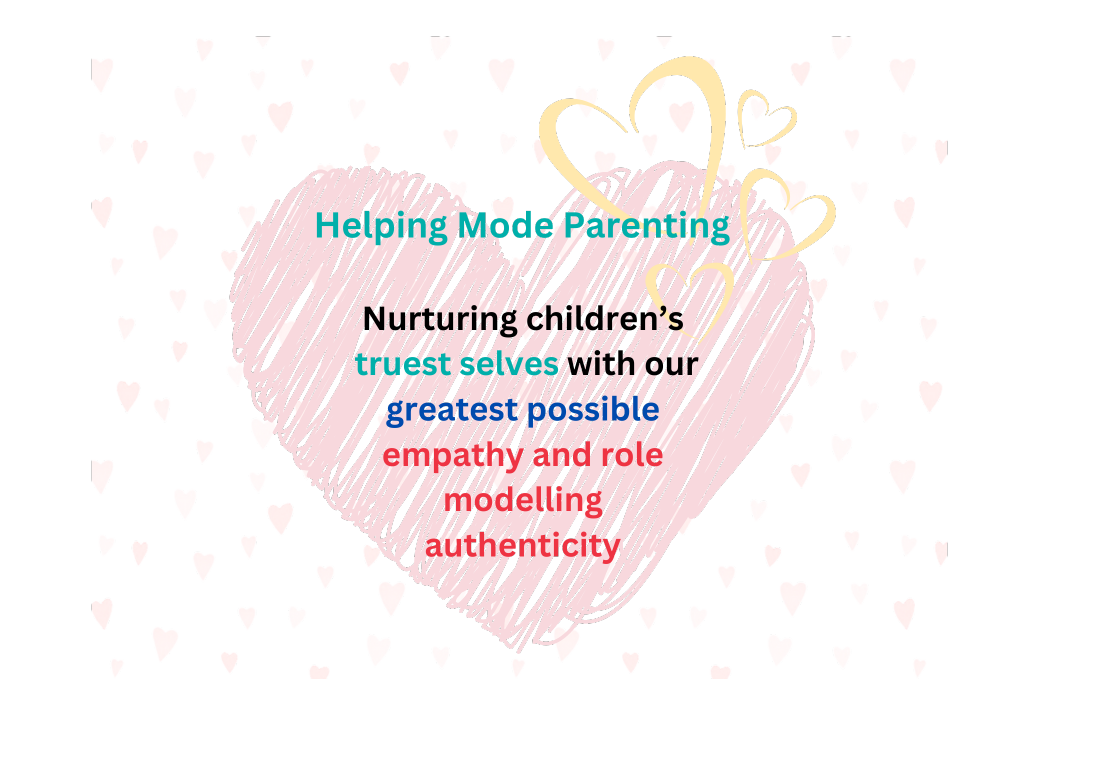We also recommend you not to hurry. You can learn a module a month, take 10 minutes of time a day, go to a quiet spot and give and watch a video in full attention. After each module , use the materials in the ehandbook, the parent story, and the somatic music soundtrack to enhance your learning. More importantly, practise what you learn in your daily life, with your children, or anyone in your family, or at work.
If you do this, you will be able to internalise the spirit of PFPW leisurely. Without studying hard, you will be able to respond to your children’s emotional needs naturally. Your children will be able to experience the empathy you give them, and can learn to empathise others from this embodied empathic experience they consistently receive from you.
However, if you choose to jump to the module that is most relevant to you, you may do so too. The base line is we want you to enjoy the course.
Helping Mode Parenting is one of the six modes of parenting mentioned in Robin’s book, Parenting for a Peaceful World. It is the most progressive form of parenting that puts empathising with children’s emotional needs, and role-modeling emotional authenticity in the way we speak our feelings to our children at its core. It is about the emotionally authentic two-way connection, not simply showing empathy, which is the base, but only one way.
As everyone has a different starting point and situation in their path of parenting, their capacity for empathy is different too. As long as we are heading in the right direction, and trying to respond to our children’s emotional needs as much as we can, we are walking along the path of Helping Mode Parenting, i.e. Parenting for a Peaceful World. This will not only enhance your parent-child relationship and family harmony, you are also handing down empathy to our next generation, and building a peaceful world together.

Even the kindest person, can be too tired or overwhelmed sometimes to be empathic. Therefore we say “greatest possible”, as we understand that people have limites. If we can respond to our children with the best possible empathy that we can summon at the time, then we are going towards the direction of Helping Mode Parenting, i.e. Parenting for a Peaceful World.
Children often have to suppress their normal emotions or views due to expectations or fear. While their emotional health would be hampered, it also thwarts the development of their natural talents, interests, and confidence. To support children to grow into their truest selves, parents and adults need to empathise with children’s real needs, and let go of our expectations and fear, so children can feel safe to live out themselves.

